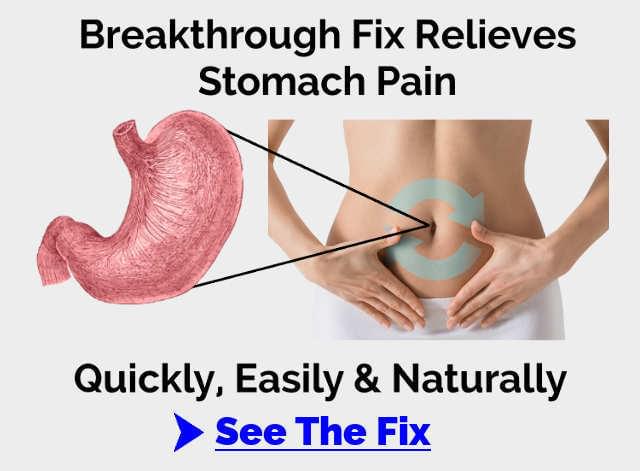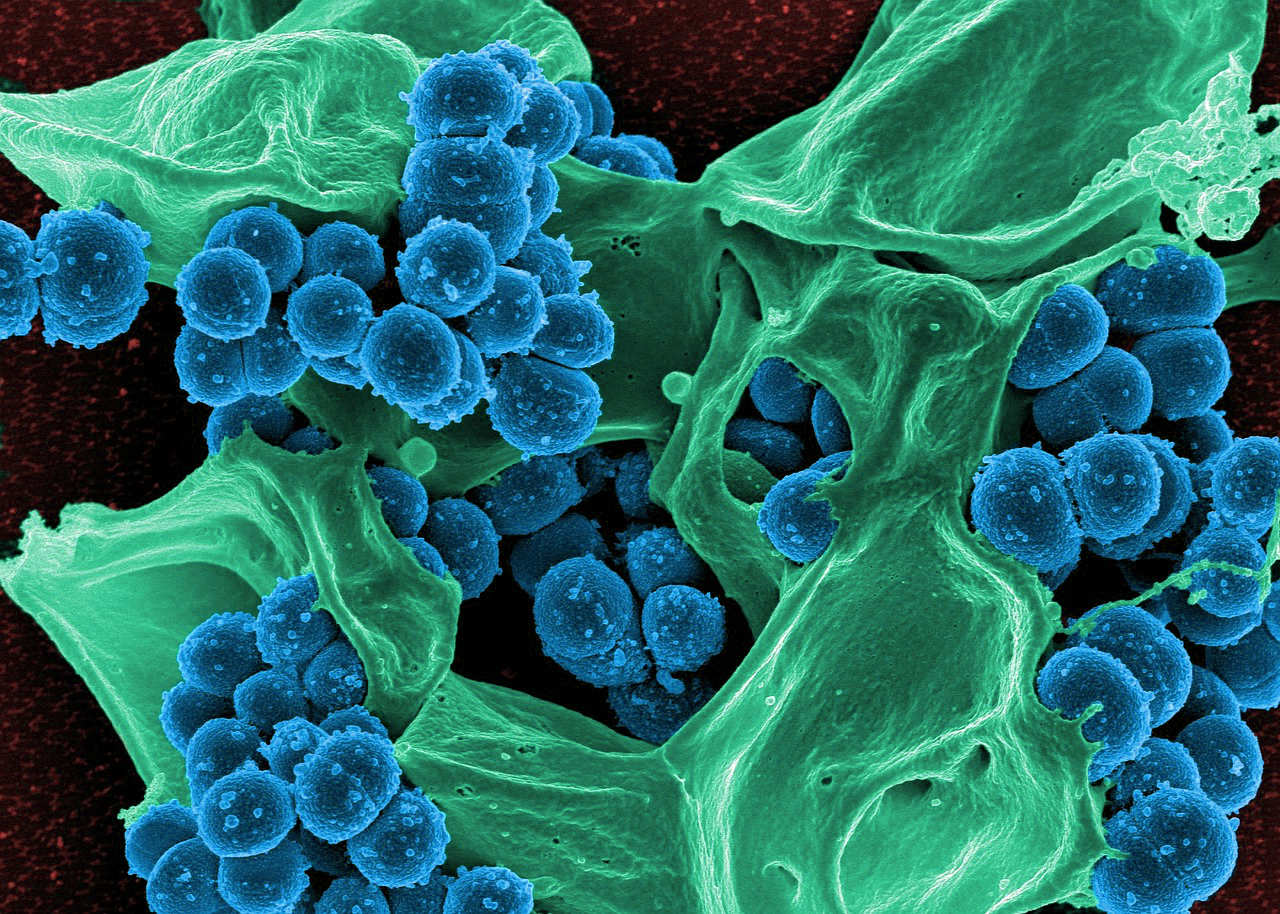
7 Symptoms of Irritable Bowel Syndrome (IBS)
and What to Do Next
CUSTOM JAVASCRIPT / HTML

Wondering if your digestive problems are related to IBS? Find out by learning common IBS symptoms, and what to do if you’re regularly experiencing gastrointestinal discomfort.
Common IBS Symptoms
Unfortunately, people with IBS can experience a range of digestive problems and a host of other issues, like:
1. Diarrhea
There are three forms of IBS. One of them is diarrhea-predominant IBS (IBS-D). People with IBS-D have, on average, twice as many weekly bowel movements as people who don’t have IBS. These frequent stools are loose and watery. Additionally, they may contain mucous.
For many people with IBS, diarrhea is a significant source of stress, because it can strike suddenly when they’re out in public.
2. Gas & Bloating
Many people with IBS say they’re very gassy. This is poorly understood by the medical field, because IBS patients don’t seem to produce more gas than people without IBS. However, gas seems to bother people with IBS more.
Furthermore, studies show that IBS patients have difficulty ridding themselves of gas. This could be due to problems with the way their nerves and gut muscles work, or they could just have extra-sensitive intestines.
If you suffer from IBS or suspect you do, it can be useful to keep a food journal. In your journal, you’ll want to track all the foods and beverages you consume, as well as how your body feels afterward. Ideally by doing this, you’ll start to see a pattern between certain foods and your symptoms.
Most people who frequently suffer from gas have noticed problems with the following foods:
• Raisins
• Brussels sprouts
• Onions
• Cabbage
• Raw broccoli or cauliflower
• Beans and other legumes, like peas, peanuts, and lentils

3. Abdominal Pain
People with IBS cite pain as their most frequent symptom, and it’s a key factor in an IBS diagnosis. In fact, pain is so prevalent with IBS that 75% of people with the condition experience frequent or continuous abdominal pain.
Although the pain can be felt throughout the entire stomach, people usually experience it in their lower abdomen. The pain’s been described as cramping, stabbing, aching, throbbing, or sharp.
Sometimes, the pain is worse after eating or a bowel movement. At other times, the pain’s relieved by a bowel movement.
4. Constipation
Another form of IBS is constipation-predominant IBS or IBS-C. When someone experiences this symptom, they’ll have abnormally delayed bowel movements and hard, lumpy stool. Also, when they go to the bathroom, they may feel as if they aren’t able to go completely.
In those with IBS-C, constipation is often accompanied by stomach pain, discomfort, and bloating. They may even experience alternating bouts of constipation and diarrhea. In that case, they’re said to have IBS-A, the third IBS type.
5. Fatigue and Difficulty Sleeping
While you wouldn’t normally associate fatigue with a gastrointestinal disorder, over half the people with IBS report feelings of fatigue. Unfortunately, this fatigue causes low stamina at work, during leisure, and in social situations.
There’s also a correlation between IBS and insomnia. For instance, it’s well-documented that people with IBS struggle to fall asleep, remain asleep for less time, and awaken frequently throughout the night.
And not only is sleep quality diminished in those with IBS, but people with IBS also find sleep less restorative. One small study found that when 50 men and women with IBS slept an hour longer than those without IBS, the individuals with IBS didn’t feel as refreshed as their IBS-free counterparts.
6. Food Intolerance
Most people with IBS (70%) are sensitive to specific foods, called trigger foods. Interestingly enough, these trigger foods aren’t allergies and don’t cause noticeable differences in digestion.
Furthermore, there’s no one trigger food that affects everyone with IBS. However, many people with IBS experience problems with caffeine, lactose, gluten, and gas-producing foods, like FODMAPs.
A FODMAP is a type of carbohydrate that’s resistant to digestion. People with IBS are often advised to avoid high-FODMAPs foods, which include certain types of fruits and vegetables, beans, lentils, wheat, rye, nuts, sweeteners, alcohol, and dairy products containing lactose.
7. Anxiety and Depression
Doctors don’t know whether IBS symptoms are a result of depression and anxiety, or if the stress of living with IBS makes people more likely to experience psychological problems. Either way, a vicious cycle ensues as IBS symptoms cause stress, which then in turn, exasperates IBS symptoms.
Unfortunately, in a study of 94,000 people, those with IBS were found to be 50% more likely to have an anxiety disorder, and more than 70% likely to have a mood disorder (depression, for example).
What to Do Next
If you’re read through this list of symptoms and think you might have IBS, you’re probably wondering what your next move should be. We suggest the following:
Conclusion
IBS symptoms can be uncomfortable and upsetting. If you’re experiencing them and suspect you may have IBS, consult with your physician. Additionally, you should consider modifying your diet, drinking more water, and taking a probiotic. By doing these things, you’ll be well on your way to regaining control over your health.
*This article should not be used as a substitute for professional medical advice, diagnosis, or treatment. Always seek the advice of your physician or other qualified health provider with any questions you may have regarding a medical condition.
Citations
https://www.aboutibs.org/medications/probiotics-and-antibiotics.html
https://www.aboutibs.org/understanding-and-managing-pain-in-ibs.html
http://americannutritionassociation.org/newsletter/science-probiotics
https://www.consumerlab.com/answers/how-many-cells-or-cfus-should-my-probiotic-have/probiotic-cells-CFU/
https://www.health.harvard.edu/diseases-and-conditions/will-probiotics-help-ibs
https://www.healthline.com/health/irritable-bowel-syndrome/ibs-flare-up-prevention-tips#3
https://www.healthline.com/nutrition/9-signs-and-symptoms-of-ibs
https://www.healthline.com/nutrition/fodmaps-101#effects
https://www.healthline.com/nutrition/probiotics-for-ibs#section1
https://hummkombucha.com/the-difference-between-good-bacteria-and-bad-bacteria/
https://www.mayoclinic.org/diseases-conditions/irritable-bowel-syndrome/diagnosis-treatment/drc-20360064
https://www.medicinenet.com/low_fodmap_diet_list_of_foods_to_eat_and_avoid/article.htm#list_of_high_fodmap_foods_to_avoid
https://www.ncbi.nlm.nih.gov/pmc/articles/PMC5848117/
https://www.ncbi.nlm.nih.gov/pubmed/27683238
https://www.verywellhealth.com/i-think-i-have-ibs-what-should-i-do-1941669
https://www.verywellhealth.com/the-symptoms-and-causes-of-irritable-bowel-syndrome-ibs-1941641
https://www.verywellhealth.com/three-easy-relaxation-exercises-1945166
https://www.webmd.com/ibs/ibs-gas#1
https://www.webmd.com/ibs/qa/how-much-water-should-you-drink-if-you-have-irritable-bowel-syndrome-with-diarrhea
https://www.webmd.com/ibs/types-ibs
FB Comments Will Be Here (placeholder)

Recent Posts
CUSTOM JAVASCRIPT / HTML
Related Content
The information presented on this website is not intended as specific medical advice and is not a substitute for professional treatment or diagnosis. These statements have not been evaluated by the Food and Drug Administration. This product is not intended to diagnose, treat, cure, or prevent any disease.
*Disclaimer: Results may vary.
© COPYRIGHT Symple Nature LLC. ALL RIGHTS RESERVED.





